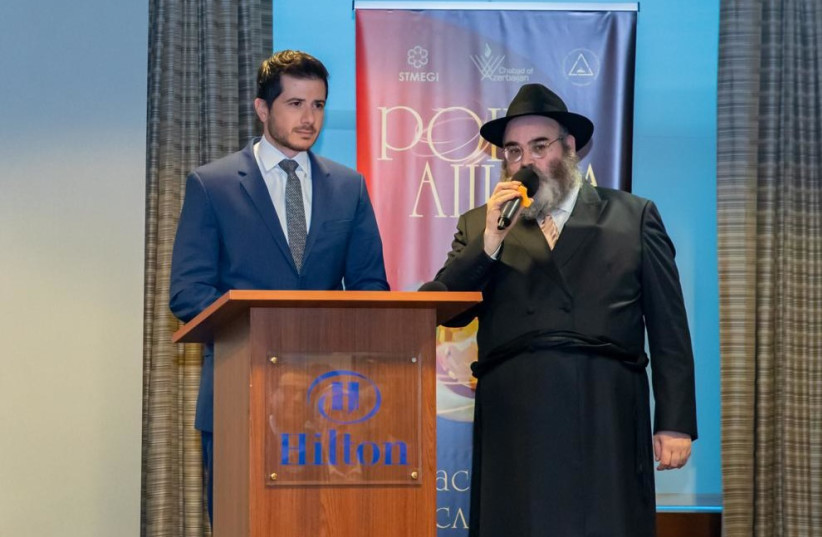As Azerbaijan undertakes “local anti-terrorist” operations in the disputed Nagorno-Karabakh region, Rabbi Shneor Segal, the chief rabbi of Azerbaijan’s Ashkenazi community, told The Jerusalem Post the situation in the country is very stable.
Historically, Nagorno-Karabakh has been a hotbed of tensions and conflicts between Armenians and Azerbaijan for decades, dating back to the Soviet era, when this strategically vital region was divided to sow divisions between Armenia and Azerbaijan.
The situation escalated into full-scale wars, most notably in the 1990s, when Armenia secured control, and in 2020, when Azerbaijan reclaimed the territory.
“We are praying for the young people from our community who serve in the Azerbaijani army,” Segal said Tuesday. “We are deeply concerned and pray for their success, just like every other citizen here in Azerbaijan.”
“The Jewish community feels an intrinsic connection to this land, and we hold steadfast hopes for significant achievements [of our army],” he said. “In truth, there is nothing inherently distinct about the Jewish experience here; like all residents, we share the same concerns, cares, and challenges.”
In response to the recent developments, Baku has said its operations in Nagorno-Karabakh are a response to a tragic mine explosion that claimed the lives of six individuals in the region. Azerbaijan’s Defense Ministry described the efforts as “local anti-terrorist activities” and said it was only targeting legitimate military targets, using “high-precision weapons.”
Azerbaijan maintains a close strategic partnership with Israel, a dynamic that adds complexity to the regional landscape. Foreign Minister Eli Cohen’s visit to Baku earlier this year underscored the significance of the relationship.

Tensions continued in Azerbaijan
While the military situation inevitably casts a shadow of tension, the Azerbaijani Jewish community remains unwavering in its commitment to nurturing Jewish life in the region, Segal said. Recent events, such as Rosh Hashanah celebrations in six modern synagogues across Azerbaijan, serve as poignant examples of their steadfast dedication, he added.
In areas outside Baku, which have been affected by military operations, painstaking efforts are under way to restore what was destroyed during decades of conflict, Segal said, adding that the lingering threat of land mines and cluster bombs presents formidable challenges.
“With nearly 25,000 Jews in Azerbaijan, our vibrant community continues to enrich the diverse tapestry of Azerbaijani society, even amid regional security challenges,” Segal said. “In times like these, it is essential to stand together and uphold the values that bind us as a community.”
